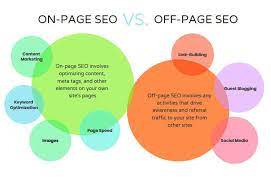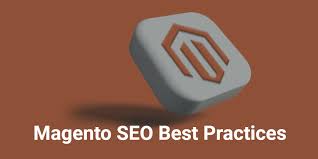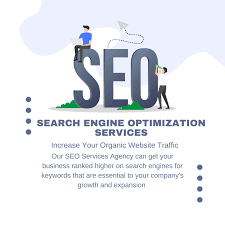Mastering WordPress SEO Optimization: Elevate Your Website’s Visibility
WordPress SEO Optimization: Boosting Your Website’s Visibility
In the competitive online landscape, having a well-optimised website is crucial for standing out and attracting organic traffic. WordPress, as one of the most popular content management systems, offers a range of tools and plugins to help you improve your site’s search engine visibility through effective SEO strategies.
Key Steps for WordPress SEO Optimization:
- Choose an SEO-friendly theme: Selecting a responsive and fast-loading theme that is optimised for search engines is the first step towards improving your website’s SEO performance.
- Optimise your permalinks: Customising your permalink structure to include relevant keywords can enhance the readability of your URLs and make them more search engine friendly.
- Create high-quality content: Producing engaging, informative, and keyword-rich content is essential for attracting both users and search engine crawlers. Regularly updating your website with fresh content can also boost your SEO efforts.
- Optimise meta tags: Crafting compelling meta titles and descriptions that accurately reflect the content of each page can improve click-through rates from search engine results pages (SERPs).
- Utilise SEO plugins: WordPress offers a variety of powerful SEO plugins such as Yoast SEO or All in One SEO Pack that can help you optimise your website’s on-page elements, analyse keyword density, and generate XML sitemaps.
- Improve site speed: Optimising images, leveraging browser caching, and using a reliable hosting provider are some ways to enhance your site’s loading speed, which is a crucial factor in both user experience and search rankings.
The Benefits of WordPress SEO Optimization:
By implementing effective SEO strategies on your WordPress website, you can enjoy several benefits including increased organic traffic, higher search engine rankings, improved user experience, enhanced brand visibility, and ultimately, greater conversions and revenue.
In conclusion, investing time and effort into WordPress SEO optimization can significantly impact the success of your online presence. By following best practices and utilising the available tools within the WordPress ecosystem, you can boost your website’s visibility and attract more qualified traffic to achieve your business goals.
8 Essential Tips for Optimising Your WordPress Site for SEO Success
- 1. Install an SEO plugin like Yoast or Rank Math to help with on-page optimization.
- 2. Use SEO-friendly URLs that include relevant keywords.
- 3. Optimise your images by using descriptive filenames and alt text.
- 4. Create high-quality, engaging content that is valuable to your audience.
- 5. Improve website speed by optimising images, using caching plugins, and choosing a reliable hosting provider.
- 6. Utilise internal linking to help search engines discover and index more of your content.
- 7. Regularly update and maintain your WordPress site to ensure it is secure and performing well for SEO.
- 8. Conduct keyword research to identify relevant terms your target audience is searching for.
1. Install an SEO plugin like Yoast or Rank Math to help with on-page optimization.
To enhance your WordPress website’s SEO performance, a valuable tip is to install an SEO plugin such as Yoast or Rank Math. These plugins offer robust features that assist in on-page optimisation, including optimising meta tags, generating XML sitemaps, analysing keyword density, and providing actionable insights to improve your content’s search engine visibility. By leveraging the capabilities of these SEO plugins, you can streamline your optimisation efforts and enhance your website’s chances of ranking higher in search engine results pages.
2. Use SEO-friendly URLs that include relevant keywords.
When focusing on WordPress SEO optimization, it is essential to pay attention to your website’s URLs. By using SEO-friendly URLs that incorporate relevant keywords related to your content, you can enhance the visibility and search engine ranking of your pages. Customising your permalinks in this manner not only makes it easier for search engines to understand the context of your content but also improves the user experience by providing clear and descriptive links. This simple yet effective tip can have a significant impact on driving organic traffic to your WordPress site.
3. Optimise your images by using descriptive filenames and alt text.
Optimising images on your WordPress website is a crucial aspect of SEO. By using descriptive filenames and alt text for your images, you not only improve accessibility for visually impaired users but also provide search engines with valuable information about the content of your images. This practice enhances the overall relevance of your website’s visual elements, making it easier for search engines to index and rank your site based on image content.
4. Create high-quality, engaging content that is valuable to your audience.
Creating high-quality, engaging content that provides genuine value to your audience is a cornerstone of effective WordPress SEO optimization. By producing content that is not only informative but also resonates with your target audience, you can enhance user engagement, establish credibility, and improve your website’s visibility in search engine results. Valuable content not only attracts organic traffic but also encourages repeat visits and social sharing, ultimately contributing to a strong online presence and increased brand authority.
5. Improve website speed by optimising images, using caching plugins, and choosing a reliable hosting provider.
To enhance your WordPress website’s SEO performance, it is essential to focus on improving website speed. This can be achieved by optimising images to reduce file sizes, implementing caching plugins to store static content for faster loading times, and selecting a reputable hosting provider that offers reliable server performance. By prioritising these aspects of website optimisation, you can create a smoother user experience, boost search engine rankings, and increase the overall efficiency of your site.
6. Utilise internal linking to help search engines discover and index more of your content.
Internal linking is a powerful strategy in WordPress SEO optimization. By strategically linking relevant pages within your website, you not only help users navigate your content more effectively but also assist search engines in discovering and indexing more of your valuable information. This practice enhances the overall structure of your site, improves user experience, and signals to search engines the importance and relevance of specific pages. Implementing internal linking as part of your SEO strategy can boost your website’s visibility and authority in search engine results.
7. Regularly update and maintain your WordPress site to ensure it is secure and performing well for SEO.
Regularly updating and maintaining your WordPress site is a crucial aspect of SEO optimization. By keeping your site’s themes, plugins, and core software up to date, you not only ensure the security of your website but also contribute to its overall performance in search engine rankings. Search engines favour websites that are secure, fast-loading, and regularly updated with fresh content. Therefore, staying on top of maintenance tasks is essential for maximising your site’s SEO potential and providing a positive user experience for visitors.
8. Conduct keyword research to identify relevant terms your target audience is searching for.
Conducting thorough keyword research is a critical step in WordPress SEO optimization. By identifying the specific terms and phrases that your target audience is searching for, you can tailor your content to align with their interests and needs. Understanding these relevant keywords not only helps improve your website’s visibility in search engine results but also ensures that your content resonates with the right audience, driving organic traffic and engagement.









